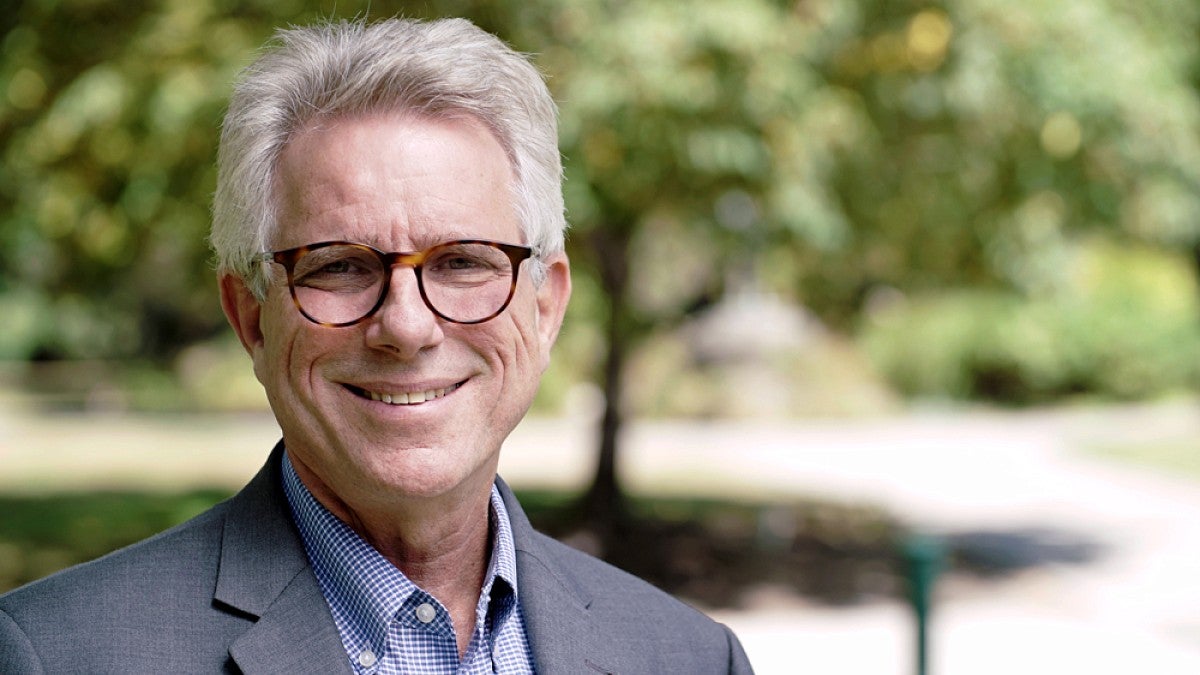After steering UO’s research and innovation operations through nearly four consecutive years of growth, David Conover will step down as vice president for research and innovation in early July.
He will serve as an emeritus professor in the Department of Biology and reengage in research examining fisheries science and the ecology and evolution of marine fishes.
“It’s been an honor and a pleasure to work with our staff in our office and our faculty in helping to expand our research enterprise,” Conover said
Since arriving at the UO in August 2016, Conover has focused his priorities on increasing externally sponsored funding, streamlining research administration, investing in core facilities and expanding the overall capacity for proposals. He developed and carried out a new strategic plan for the office and incentivized and encouraged faculty to apply for more and larger grants.
During his tenure, the UO saw an overall growth of 20 percent in research expenditures and a 60 percent growth in new multiyear award commitments.
“He’s done an excellent job of expanding the pipeline for researchers as the university has hired additional faculty members and invested in our research infrastructure,” said Cassandra Moseley, incoming interim vice president for research and innovation.
Moseley, who will take the reins from Conover on July 3, pointed to the expansion of UO’s Research Development Services unit as one key area of accomplishment for Conover. The unit, which helps researchers identify funding opportunities and develop compelling, competitive proposals, has tripled its staff and grown its array of trainings, workshops, seed grants and other services.
Conover worked alongside UO President Michael Schill and Provost and Senior Vice President Patrick Phillips during a time of research expansion with the hiring of new tenure-track faculty members, the construction of the Phil and Penny Knight Campus for Accelerating Scientific Impact, and the launch of the Data Science Initiative and other programs funded through the Presidential Fund for Excellence, as well as a joint seed funding program with Oregon Health & Science University.
“David has served the university with distinction and been instrumental in promoting interdisciplinary research excellence and innovation in every corner of campus,” Phillips said in announcing Conover’s retirement.
Prior to coming to the UO, Conover spent 35 years as a researcher and administrator at Stony Brook University in Long Island, New York, where he served as a professor of marine science, dean of the School of Marine and Atmospheric Sciences, and the institution’s vice president for research. Additionally, Conover did a stint as director of the Division of Ocean Sciences at the National Science Foundation, the foundation’s second-largest division, and played a role in helping launch the Alan Alda Center for Communicating Science at Stony Brook.
As an emeritus professor, Conover will build upon a research career that has included some noteworthy discoveries involving the effects of temperature on sex determination in fish, the evolutionary mechanisms by which fish adapt to climate change, the long-term genetic consequences of size-selective fishing and numerous other lines of inquiry.
“I’m going to be doing a lot of writing as an emeritus professor,” said Conover, who plans to focus initially on synthetic review articles. “I’d like to do some looking back, see what progress has been made and do an assessment of where we are today and where we need to go in areas of research I helped to foster.”
Conover remains committed to science communications and said efforts by faculty members to share their research with wider audiences and highlight the value that research universities like the UO bring to society have never been more important than they are today.
“When I’ve done public lectures or engaged the public in the kind of research that I’m doing, I’ve always gotten a lot of personal satisfaction out of getting people excited about things they didn’t know about,” Conover said. “The research we do shouldn’t only go into scientific journals. It’s important that the public also have an opportunity to understand what we’re doing and why it’s important. Now more than ever, I think that’s a critical part of the public service mission of a research university.”
—By Lewis Taylor, University Communications


